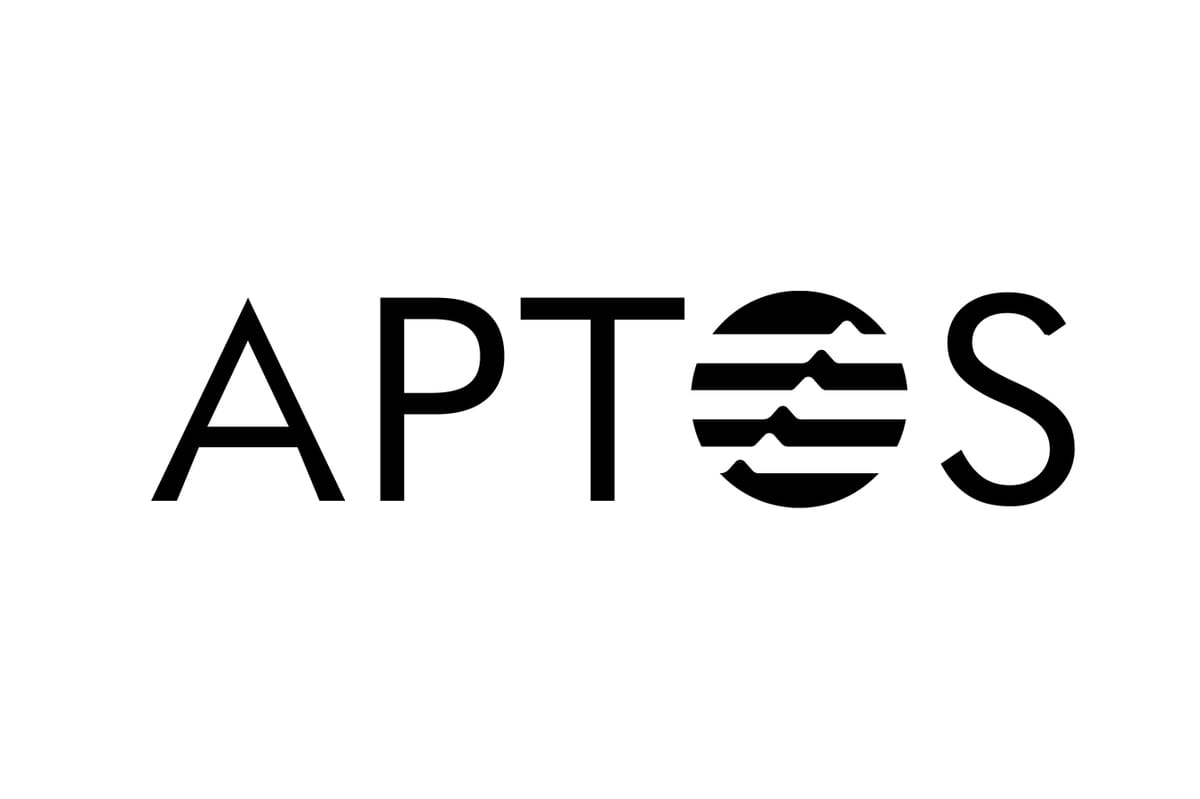
Let's start with the most basic information. Aptos is a Layer1 blockchain created by Mo Shaikh and Avery Ching – former Meta employees. Aptos was created with an emphasis on “absolute safety, extensible scalability, and credible neutrality.” According to the developers, they are creating “the safest and most scalable Layer 1 blockchain.” A powerful statement. And what is it supported by?
Let's dig a little deeper into the history of the appearance of Aptos. It all started before Aptos was envisaged. Its beginnings were with Libra Association, a project from Meta, which was later renamed to Diem. This project was a Libra cryptocurrency and a Calibra wallet from Meta. But, everything went extremely badly, as regulators became interested in the project. Maxine Waters – chairwoman on the House Financial Services Committee – called the Libra project another “unchecked expansion” of Facebook. And later Patrick McHenry requested a hearing from Waters on this issue.
Meanwhile, the seniormost Republican on the committee, Rep. Patrick McHenry, sent a letter to Waters also asking for a hearing. pic.twitter.com/Rx2AX2pbKQ
— Brian Fung (@b_fung) June 18, 2019
This reaction was due to Facebook's previous mistakes, which you most likely remember. But, that was just the beginning. After Maxine Waters' statement, five more lawmakers sent an open letter to Facebook asking it to stop the development of Libra.
“We write to request that Facebook and its partners immediately agree to a moratorium on any movement forward on Libra- its proposed cryptocurrency and Calibra - its proposed digital wallet. It appears that these products may lend themselves to an entirely new global financial system that is based out of Switzerland and intended to rival U.S. monetary policy and the dollar. This raises serious privacy, trading, national security, and monetary policy concerns for not only Facebook's over 2 billion users, but also for investors, consumers, and the broader global economy.”
After that, a public hearing was held, in which David Marcus, one of the creators of Libra, spoke. At the hearing David behaved hesitantly, and gave the most unconvincing vague answers. When he was asked about user data leaks, he could not answer anything clearly.
Later, the Libra Association was renamed to Diem. But, rebranding did not help the company to cease pressure from regulators. David Marcus left Meta, and the Diem project began to fall apart. In early 2022, a statement appeared on the Diem project website that the project was sold to Silvergate Capital Corporation for $200 million.
Around the same time, a new project appeared – Aptos. Its creators – Mo Shaikh and Avery Ching – are former employees of the Diem project.

On February 24, an article from Mo Shaikh titled “The Genesis of Aptos" appeared on the Aptos blog on Medium. In it, Mo talked about the new project. He also mentioned that the Aptos team consisted, among others, of those who worked on Diem, and Aptos itself inherits the Diem mission.
“Aptos is a new, independent project to fulfil our vision of delivering the safest and most production-ready blockchain in the world. <…> We are the original creators, researchers, designers, and builders of Diem, the blockchain that was first built to serve this purpose. While the world never got to see what we built, our work is far from over.”
A few weeks later, Mo Shaikh announced on Twitter that Aptos had received $200 million in funding from various companies, including: a16z, Multicoin Capital, 3 Arrows Capital, ParaFi Capital, Haun Ventures, Hashed, Variant, Blocktower Capital, FTX Ventures, Paxos, Tiger Global and others.
1/ 🌊 As part of our mission of building a L1 for the next billion users, we are thrilled to announce two things:
— Mo Shaikh (@moshaikhs) March 15, 2022
a) Our new $200M funding round led by a16z...
b) Launch of our devnet! Special invite somewhere below 👇 https://t.co/ApU0j1lZCu
On the same day, a public testnet was opened – Devnet Aptos. Some bonuses were added to it in the form of the publication of the Aptos code in the public domain, as well as the publication of the Move programming language, which is used in Aptos. Judging by the names of the folders in the branch where the documentation of this language is located, it was also used in Diem.
An article from Avery Ching entitled “The Aptos Vision” was added to all of the above statements by the developers on March 15, in which Avery named a number that would be useful to us in the future.
“Using novel techniques inspired from software transactional memory, we achieve over 130k transactions per second with only 32 cores in our execution only benchmark.”
Furthermore, the company actively advertised itself, raised funds and moved to launch. At the end of April, Aptos Labs announced a collaboration with Google Cloud to further ensure the decentralization of the Aptos network. In early June, Aptos completed Aptos Incentivized Testnet 1 and continued active work on Aptos Incentivized Testnet 2. At the end of June, Aptos announced a grant program.
In July, another round of funding took place, in which Aptos Labs received $150 million from FTX Ventures and Jump Crypto. Binance Labs also became a strategic investor for Aptos Labs.
1/ Today, we announced our $150M Series A funding round. This is a testament to our team's technical expertise, the strength & activity of our ecosystem and the vision & ethos we all share. https://t.co/GGnn4TY9Lw
— Aptos (@Aptos_Network) July 25, 2022
On the first of August, work on Aptos Incentivized Testnet 2 was completed. And on August 11, Aptos whitepaper was published under the title “The Aptos Blockchain: Safe, Scalable, and Upgradeable Web3 Infrastructure.”
The whitepaper described the main advantages of the Aptos network, including:
- Using the Move programming language for fast and secure transaction execution.
- Flexible key management and hybrid custodial options.
- High throughput and low latency.
- Client flexibility.
On August 11, a collaboration with Blocto was announced. At the end of September, Aptos Labs finished work on Aptos Incentivized Testnet 3. And October became the month of launch and questions from the crypto community for the company.
On October 17, the long-awaited launch took place. The launch was accompanied by an article on the Aptos blog on Medium, in which the developers happily described the launch and invited everyone to participate in Aptos support. In addition, the article again described the previously announced advantages of the Aptos network.
The main exchanges within the crypto industry placed a listing of the native token Aptos – APT.
Coinbase will add support for Aptos (APT) on the Aptos network. Do not send this asset over other networks or your funds may be lost. Inbound transfers for this asset are available on @Coinbase & @CoinbaseExch in the regions where trading is supported.
— Coinbase Assets (@CoinbaseAssets) October 18, 2022
#Binance will list Aptos $APT.
— Binance (@binance) October 18, 2022
But, not everything went smoothly. Remember, we asked you to recall one number? Namely, the network bandwidth, which according to the developers was supposed to be around 130,000 transactions per second. So here it is, after the launch, the network bandwidth was 4. No, not 4 thousand, just 4 transactions per second! Crypto analyst @ParadigmEng420 noticed this and shared this information on his Twitter.
Let's look at transaction speeds on Aptos.
— Paradigm Engineer #420 (@ParadigmEng420) October 17, 2022
Aptos promises 100k TPS in its finalized version. However, the current TPS is somewhere around 4 transactions per second. pic.twitter.com/joWnxAeIpZ
Moreover, @ParadigmEng420 writes that most of these transactions are not transactions at all. These are just validators that exchange data, set block checkpoints, and write metadata to the blockchain.
It's hard to see how users can even use Aptos right now, I personally cannot find any rpcs nor connect with any validators to send transactions.
— Paradigm Engineer #420 (@ParadigmEng420) October 17, 2022
In addition, @ParadigmEng420 noticed that the main Discord channels of Aptos were closed after the launch. Users could not directly contact the developers.
@AptosLabs if you guys new something went wrong, why not announce it publicly instead of shutting down your discord and pretending the launch went smoothly?
— Paradigm Engineer #420 (@ParadigmEng420) October 17, 2022
But, the strangest data shared by @ParadigmEng420 is the fact that “a bit over 80% of the token supply is controlled by the team and investors, as there was no airdrop nor other method as to earn mainnet Aptos tokens.”
The total supply of Aptos is 1,000,739,234.25, however, 821,111,362.91 is currently staked. This means that a bit over 80% of the token supply is controlled by the team and investors, as there was no airdrop nor other method as to earn mainnet Aptos tokens.
— Paradigm Engineer #420 (@ParadigmEng420) October 17, 2022
In general, the launch did not go as smoothly as the developers and the community would have liked. The price of the APT token peaked at $10.13 on October 23, according to Coinmarketcap. But, now the price of the token ranges from $7-$8.

The launch took place quite recently and now you will have to wait to evaluate how good this project is and how long it will last on the market. But apparently, market players have confidence in this project. In addition to the above companies that have cooperated with Aptos, there are also many others. Layer Zero Labs integrated with Aptos. Liquid staking (what is it?) of APT support the Ditto and Tortuga platforms. NFT on the Aptos blockchain is distributed by the Topaz platform.
1/ @LayerZero_Labs is fully integrated with the Aptos network 💪
— Aptos (@Aptos_Network) October 10, 2022
Omnichain interoperability is critical for web3 adoption, and we’re proud to lead the way for the entire Move community by expanding our cross-chain capabilities with LayerZero. https://t.co/sXuinMcxDI
It is quite reasonable that Aptos developers should have invested more money in development than in PR. Probably, the launch would have been more successful. But, it is what it is. We hope that Aptos will not turn out to be a scam project and a set of promises, and we continue to observe.

